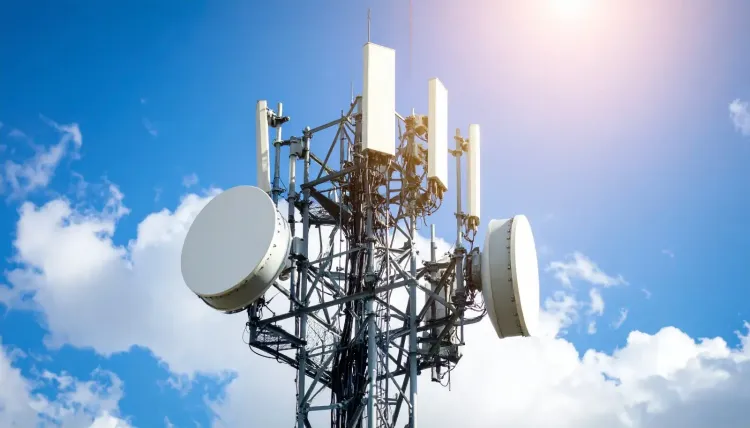Why Are Banks and Financial Entities Required to Adopt 1600-Series Numbers?

Synopsis
Key Takeaways
- TRAI mandates the adoption of the 1600-series for BFSI sector.
- Deadlines are set for various financial entities.
- The initiative aims to curb spam and fraud.
- Consumers can better identify legitimate calls.
- Over 485 entities have already transitioned to the 1600 series.
New Delhi, Nov 19 (NationPress) The Telecom Regulatory Authority of India (TRAI) has issued a directive mandating the final deadlines for the adoption of the '1600' numbering series by organizations in the Banking, Financial Services, and Insurance (BFSI) sector, along with government entities. This initiative aims to clearly differentiate service and transactional calls from other commercial communications.
The primary goal of this directive is to combat spam and mitigate fraudulent activities that occur via voice calls.
In alignment with TRAI’s regulatory efforts, the '1600' numbering series has been designated by the Department of Telecommunications (DoT) for allocation to BFSI sector entities that are regulated by the RBI, SEBI, Pension Fund Regulatory and Development Authority (PFRDA), and government organizations. This series will help citizens reliably identify authentic calls from regulated financial institutions, as stated in an official announcement.
The directive specifies that all Mutual Funds and Asset Management Companies (AMCs) must complete their adoption of the '1600' numbering series by February 15, 2026.
For Qualified Stockbrokers (QSBs), the deadline for adopting the '1600' series is set for March 15, 2026.
Currently, other SEBI-registered intermediaries may voluntarily transition to the 1600-series following the verification of their registration details, as stated in the directive.
Commercial banks (including Public Sector Banks, Private Sector Banks, and Foreign Banks) are required to adopt the '1600' series by January 1, 2026.
Large NBFCs (with an asset size exceeding Rs 5,000 crore), Payments Banks, and Small Finance Banks must onboard by February 1, 2026, while the remaining NBFCs, Co-operative Banks, Regional Rural Banks, and smaller entities should complete their onboarding by March 1, 2026, according to the directive.
Central record-keeping agencies and Pension Fund Managers are expected to onboard by February 15, 2026.
The requirement for the adoption deadline of the '1600' series by the entities within the insurance sector is currently under discussion with the IRDAI and will be announced later, as mentioned in the official statement.
The structured and time-sensitive adoption of the '1600' series is anticipated to significantly enhance consumer safety and aid in combating impersonation-based financial fraud conducted through voice calls.
Following the assignment of the series and allocation of numbering resources to Telecom Service Providers (TSPs), TRAI has consistently interacted with TSPs and regulators in the BFSI sector regarding the adoption of the 1600 series by BFSI sector entities. As a result of these efforts, approximately 485 entities have already transitioned to the 1600 series, subscribing to over 2800 numbers, according to the statement.
Based on TRAI’s discussions with stakeholders, it was determined that the time is right to mandate the timely completion of this transition. This will encourage entities still using standard 10-digit numbers for service and transactional calls to switch to 1600 series numbers, thereby reducing the risk of fraudulent or misleading calls disguised as trusted financial institutions, as explained in the statement.
TRAI has gathered feedback about the timelines from the regulators of the BFSI sector, following discussions held during meetings of the Joint Committee of Regulators. Based on consultations with them, a phased implementation schedule has been released, the statement concluded.









